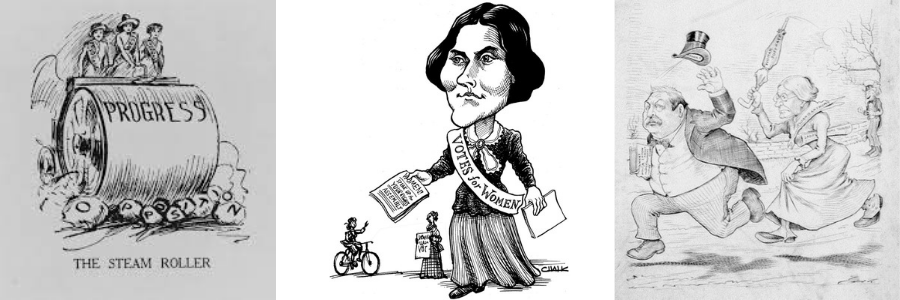Thank you Elizabeth Cady Stanton, Lucretia Mott and Susan B. Anthony, and the hundreds of women who followed them, demanding the vote.
Women gave their lives to these endeavors. Elizabeth and Lucretia organized and founded the first Women’s Rights Convention in 1848 Seneca Falls, NY, where they lived. Hundreds of women walked, came by horseback, train, and carriage to attend this meeting. And they were inspired (and some were shocked) by Elizabeth’s call for the vote. Frederick Douglass – who was the male sponsor they needed to hold the convention – felt it was too brash and controversial a demand. But Elizabeth insisted, and the resolution passed narrowly, kicking off the Women’s Suffrage Movement.
72 years later, when the vote was finally won, only one woman from that 1848 gathering had lived long enough to cast a legal vote. She had been a 16 year old glovier at the convention, looking only for the right to keep the wages she earned away from her alcoholic father, and at 88 she entered the ballot box.
Notably, Susan B. Anthony was not at the convention. She voted in her lifetime, and was arrested each time. She argued in court that the right was granted by the 14th Amendment (that ended slavery and gave black men the right to vote.) Susan B and Elizabeth Cady Stanton met eventually and became lifelong working partners to earn the vote.
But what does this have to do with writing, you might ask? You may or may not know the name Elizabeth Cady Stanton. You probably recognize Susan B. Anthony of silver dollar fame.
Elizabeth was the writer and strategist between the two. She wrote, among other things, “The Declaration of Sentiments,” used at the convention to declare their intentions and seek the vote. Susan never married, and therefore didn’t have – as Elizabeth did – 7 children to care for. Susan was the speaker. She spent much of her life traveling from town to town, handing out the pamphlets Elizabeth had written, and speaking to large and small crowds all over the country.
To paraphrase Senator Henry Stanton, Elizabeth’s husband,
Elizabeth stirred the pot, and Susan served it up to the nation.
They were true partners and courageous women whose life’s work advanced our right to vote and to assume equal status in our lives with men. Susan B. Anthony was the speaker. She was sharing Elizabeth’s words and arguments, but her true talent was in her ability to inspire people to organize and act. And in her willingness to travel and speak and forgo a more conventional life of marriage and family.

Late in life, after being vilified and described as a monster in local press, hounded out of towns, arrested for voting and generally being treated terribly, it is Susan who was beloved. She was referred to as “Aunt Susan” in the press and by the young suffragettes in the 1900’s. It was Susan who got a coin minted in her likeness. It is Susan B. Anthony who is revered.
On this 98th anniversary, I wanted to tell this important story of courageous and visionary women’s work. So often you hear, “they gave women the vote.” It was earned.
And what arises for me, too, is – even if you’re a GREAT writer – you should speak. We need to tell our own stories, share the energy and passion we have for our topics. It is amazing to write and move people to action, compassion, tears, laughter. It is greater to take the next step and speak about your content.
If you’re interested in speaking, let me know. You’ll find me in our FB group: Write Without the Fight.